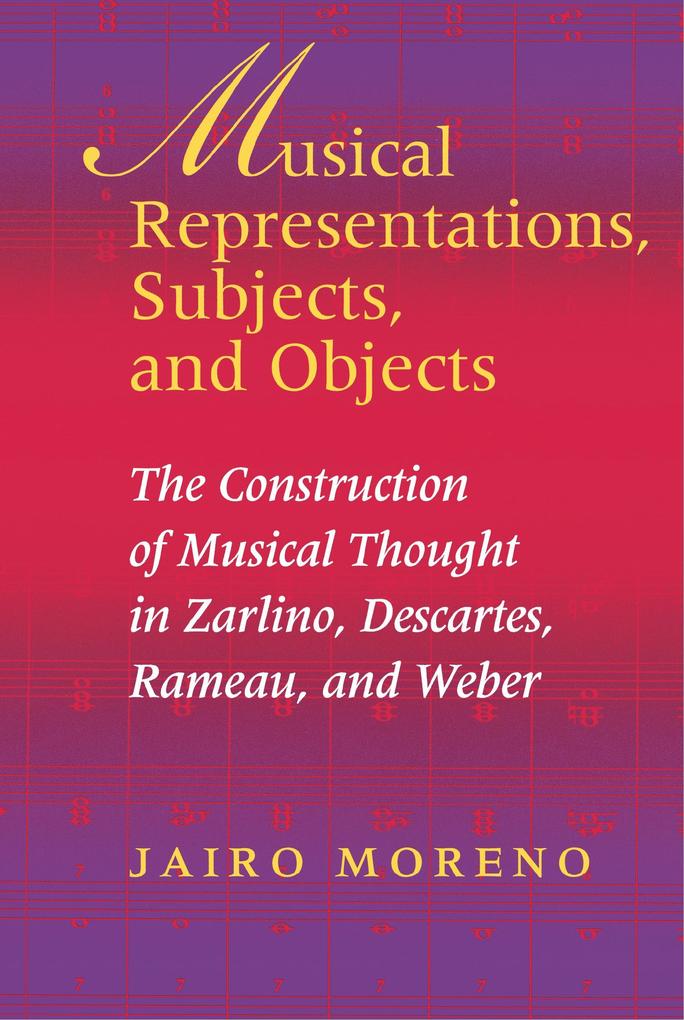Jairo Moreno adapts the methodologies and nomenclature of Foucault's "archaeology of knowledge" and applies it through individual case studies to the theoretical writings of Zarlino, Descartes, Rameau, and Weber. His conclusion summarizes the conditions-musical, philosophical, and historical-that "make a certain form of thought about music necessary and possible at the time it emerges."
Musical Meaning and Interpretation-Robert S. Hatten, editor
Inhaltsverzeichnis
Acknowledgments
Note on Translations
Introduction
1. Zarlino: Instituting Knowledge in the Time of Correspondences
2. The Representation of Order: Perception and the Early Modern Subject in Descartes's Compendium musicae
3. The Complicity of the Imagination: Representation, Subject, and System in Rameau
4. Gottfried Weber and Mozart's K. 465: The Contents and Discontents of the Listening Subject
Epilogue
Glossary of Greek Terms
Notes
Bibliography
Index










